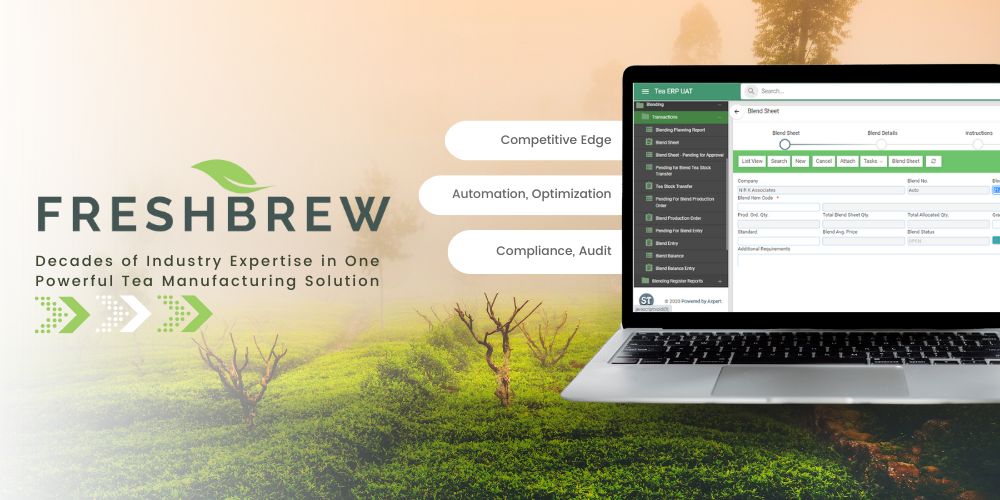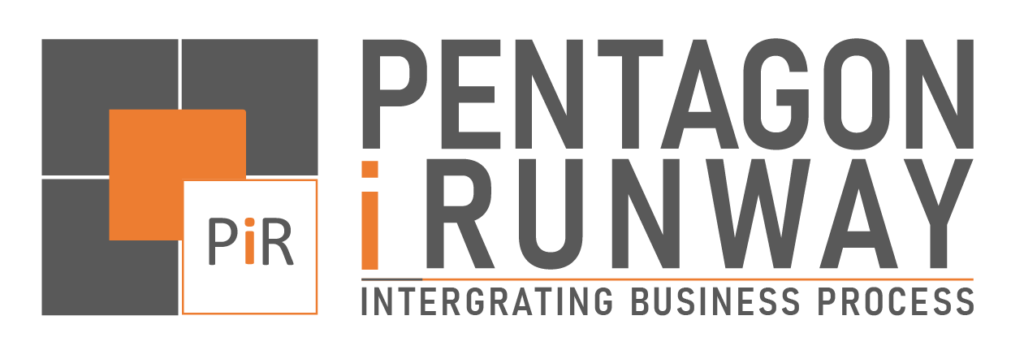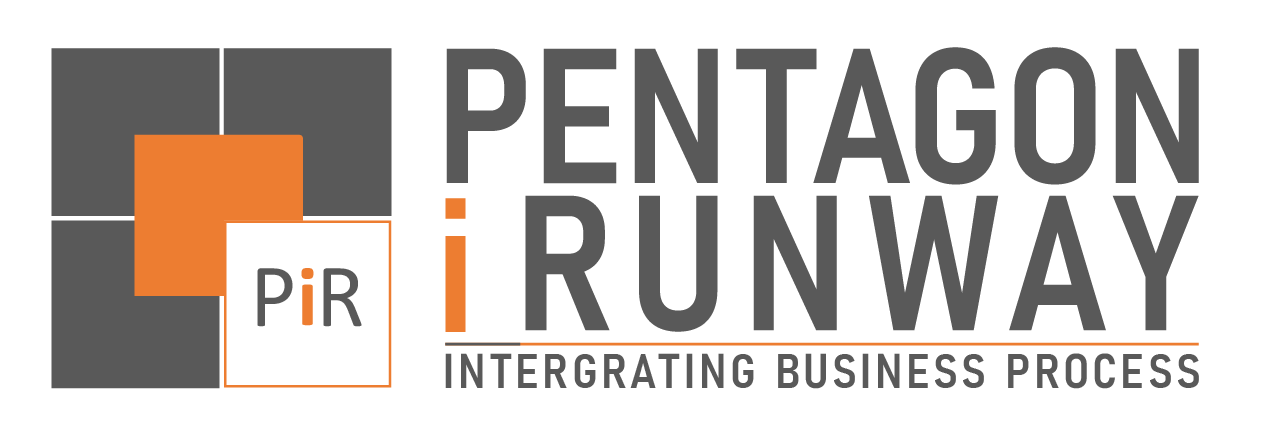- Insights
- March 1, 2023
Brewing Success
How ERP Systems are Revolutionizing the Global Tea Industry
The global tea market is a thriving industry that has been popular for centuries, valued at approximately 207.1 billion U.S. dollars in 2020 and expected to reach 266.7 billion dollars by 2025 according to Statista. This growth can be attributed to factors such as changing consumer preferences, health benefits, and increasing demand for organic and herbal tea products. China remains the largest tea producer, followed by India and Kenya . Turkey has the highest per capita consumption, while Pakistan is the largest tea importer . The industry has various product categories, with black tea being the most popular, though there is a growing demand for green tea and herbal tea, which are believed to have health benefits.
Developing and emerging countries such as China and India are experiencing steady growth in both tea production and consumption according to the global tea market report. However, rising production costs is a significant challenge to address these challenges, the tea industry can implement an enterprise resource planning (ERP) system, which can centralize business processes, streamline operations, and improve decision-making capabilities.
Despite the growth and potential opportunities, tea industry professionals recognize the challenges of sustainability in the global tea industry. For sustainable development, it is important to adopt the Triple Bottom Line (TBL) framework, which evaluates performance in a broader perspective to create greater business value. The global tea industry faces various challenges, but with the right strategies and policies in place, the industry can achieve sustainable growth and continued success.



Challenges the Tea Manufacturing Industry Faces
Competitiveness:
The tea industry has grown significantly in the last few decades, with tea now being grown in over 35 countries, mostly in developing countries. However, this growth has led to increased competition in the global tea industry. In order to improve the competitiveness of the global tea industry, it is necessary to recognize the nature of the competition and implement strategies and policies that promote efficiency, productivity, and innovation.
One strategy for improving competitiveness is to focus on making informed decisions. By freeing people from redundant work, they can improve efficiency in their areas of expertise and develop innovative solutions. Additionally, implementing state-of-the-art technology can optimize production to a greater level.
Cost:
The cost of production is another major challenge faced by the global tea industry. Labor cost, in particular, represents a significant portion accounting for around 50%-60% of the total production cost. In order to overcome this challenge, tea manufacturers need to focus on improving labor productivity.
One possible solution is to invest in technology and automation, to reduce the need for manual labor in the production process. The tea manufacturing industry faces various challenges in optimizing costs, including operational inefficiencies on the shop floor. To address this, implementing a tracking mechanism can be a useful strategy. By closely monitoring and analyzing the production process, manufacturers can identify areas of inefficiencies, and delays. This data can then be used to make informed decisions to identify improvement areas, such as reducing lead times, streamlining production workflows, or addressing bottlenecks.
Utilizing Production Capacity/Meeting Efficiency:
The tea industry needs to increase efficiency to remain competitive in the market. Increasing efficiency
depends on several factors, including production planning, resource utilization, minimizing inventory aging, and managing setup times for production processes.
One possible solution to this challenge is to implement an Enterprise Resource Planning (ERP) system. An ERP system can help manage and optimize production processes, improve inventory management, and increase overall efficiency. Other possible solutions include investing in modern equipment and implementing lean manufacturing principles.
Regulations:
The tea industry is subject to various regulations, including quality standards, import/export and food safety regulations. Failure to comply with these regulations can result in penalties, product returns, and harm to brand reputation.
To overcome this challenge, tea manufacturers need to stay up-to-date with the latest regulations and ensure compliance with them. They can also implement quality control measures throughout the production process to ensure that their products meet the required standards.
Another solution to overcome the challenges imposed by regulations in the tea industry is to adopt a system that is flexible enough to incorporate any changes that come their way. By doing so, tea manufacturers can ensure that their products remain compliant with the latest regulations, reducing the risk of penalties, product returns, and harm to brand reputation.
Such a system can be efficient in managing quality standards, import/export regulations, and food safety regulations, giving manufacturers greater confidence in their ability to comply with regulatory requirements. This approach can help tea manufacturers stay ahead of the curve, ensuring that their products meet the required standards which help to maintain their competitive edge in the industry
Challenges the Tea Manufacturing Industry Faces
Competitiveness:
The tea industry has grown significantly in the last few decades, with tea now being grown in over 35 countries, mostly in developing countries. However, this growth has led to increased competition in the global tea industry. In order to improve the competitiveness of the global tea industry, it is necessary to recognize the nature of the competition and implement strategies and policies that promote efficiency, productivity, and innovation.
One strategy for improving competitiveness is to focus on making informed decisions. By freeing people from redundant work, they can improve efficiency in their areas of expertise and develop innovative solutions. Additionally, implementing state-of-the-art technology can optimize production to a greater level.
Cost:
The cost of production is another major challenge faced by the global tea industry. Labor cost, in particular, represents a significant portion accounting for around 50%-60% of the total production cost. In order to overcome this challenge, tea manufacturers need to focus on improving labor productivity.
One possible solution is to invest in technology and automation, to reduce the need for manual labor in the production process. The tea manufacturing industry faces various challenges in optimizing costs, including operational inefficiencies on the shop floor. To address this, implementing a tracking mechanism can be a useful strategy. By closely monitoring and analyzing the production process, manufacturers can identify areas of inefficiencies, and delays. This data can then be used to make informed decisions to identify improvement areas, such as reducing lead times, streamlining production workflows, or addressing bottlenecks.
Utilizing Production Capacity/Meeting Efficiency:
The tea industry needs to increase efficiency to remain competitive in the market. Increasing efficiency
depends on several factors, including production planning, resource utilization, minimizing inventory aging, and managing setup times for production processes.
One possible solution to this challenge is to implement an Enterprise Resource Planning (ERP) system. An ERP system can help manage and optimize production processes, improve inventory management, and increase overall efficiency. Other possible solutions include investing in modern equipment and implementing lean manufacturing principles.
Regulations:
The tea industry is subject to various regulations, including quality standards, import/export and food safety regulations. Failure to comply with these regulations can result in penalties, product returns, and harm to brand reputation.
To overcome this challenge, tea manufacturers need to stay up-to-date with the latest regulations and ensure compliance with them. They can also implement quality control measures throughout the production process to ensure that their products meet the required standards.
Another solution to overcome the challenges imposed by regulations in the tea industry is to adopt a system that is flexible enough to incorporate any changes that come their way. By doing so, tea manufacturers can ensure that their products remain compliant with the latest regulations, reducing the risk of penalties, product returns, and harm to brand reputation.
Such a system can be efficient in managing quality standards, import/export regulations, and food safety regulations, giving manufacturers greater confidence in their ability to comply with regulatory requirements. This approach can help tea manufacturers stay ahead of the curve, ensuring that their products meet the required standards which help to maintain their competitive edge in the industry


Fresh Brew: A Customized ERP Solution for the Global Tea Industry
To help tea manufacturers around the world implement an ERP system, we have developed a customized solution called Fresh Brew. Fresh Brew is designed to cover all phases of the tea manufacturing process, from pre-costing to dispatching the final tea products. It is a software solution that integrates all modules of the tea manufacturing operation, allowing tea manufacturers to increase their productivity through an end-to-end system.
By using Fresh Brew, tea manufacturers can benefit from simplified business accounting, access to real-time information, time and money saved, better supply chain management, decision-making and forecasting, better inventory management, and a seamless production process in one platform.

Further, this allows tea manufacturers to
- Simplify Business Accounting: With an ERP system like Fresh Brew, tea manufacturers can simplify their accounting processes by integrating their financial management functions into one platform. This eliminates the need for manual data entry, reduces errors, and saves time and effort.
- Access to Real-Time Information: With real-time access to data on production, inventory, sales, and financials, tea manufacturers can make informed decisions quickly. This is particularly important in the fast-paced tea industry, where quick informed decisions can make the company successful.
- Money and Time Saved: Implementing an ERP system like Fresh Brew can save tea manufacturers time and money by streamlining processes, reducing errors, and increasing efficiency. This converts to increased profitability for the business.
- Better Supply Chain Management: The Fresh Brew ERP system gives tea manufacturers real-time visibility into their supply chain, allowing them to optimize processes and reduce costs. This includes managing suppliers, monitoring inventory levels, and tracking shipments.
- Decision-Making and Forecasting: With the ability to access real-time data and analytics, tea manufacturers can make informed decisions about production, sales, and inventory management, but not limited to. They can also use this information to forecast future trends and plan accordingly.
- Better Inventory Management: Fresh Brew allows tea manufacturers to manage their inventory in real-time, which helps to prevent stock shortages and overstocking. This leads to increased efficiency, lower costs, and improved customer satisfaction.
- Seamless Production Process: By integrating all aspects of the tea manufacturing process into one platform, Fresh Brew helps to ensure a seamless production process. This includes managing everything from raw materials to finished products, production planning, and quality control. This results in a more efficient and effective manufacturing process.


